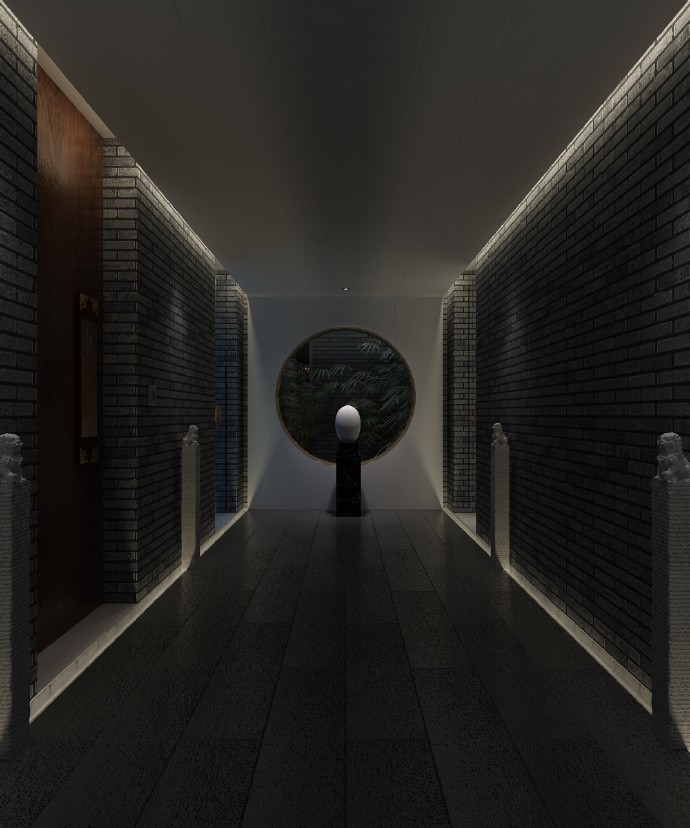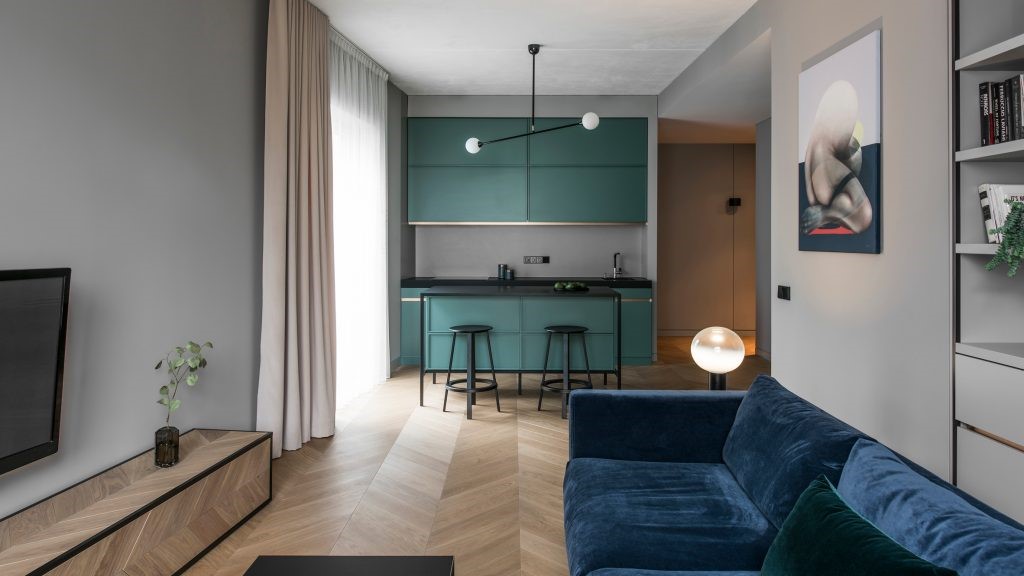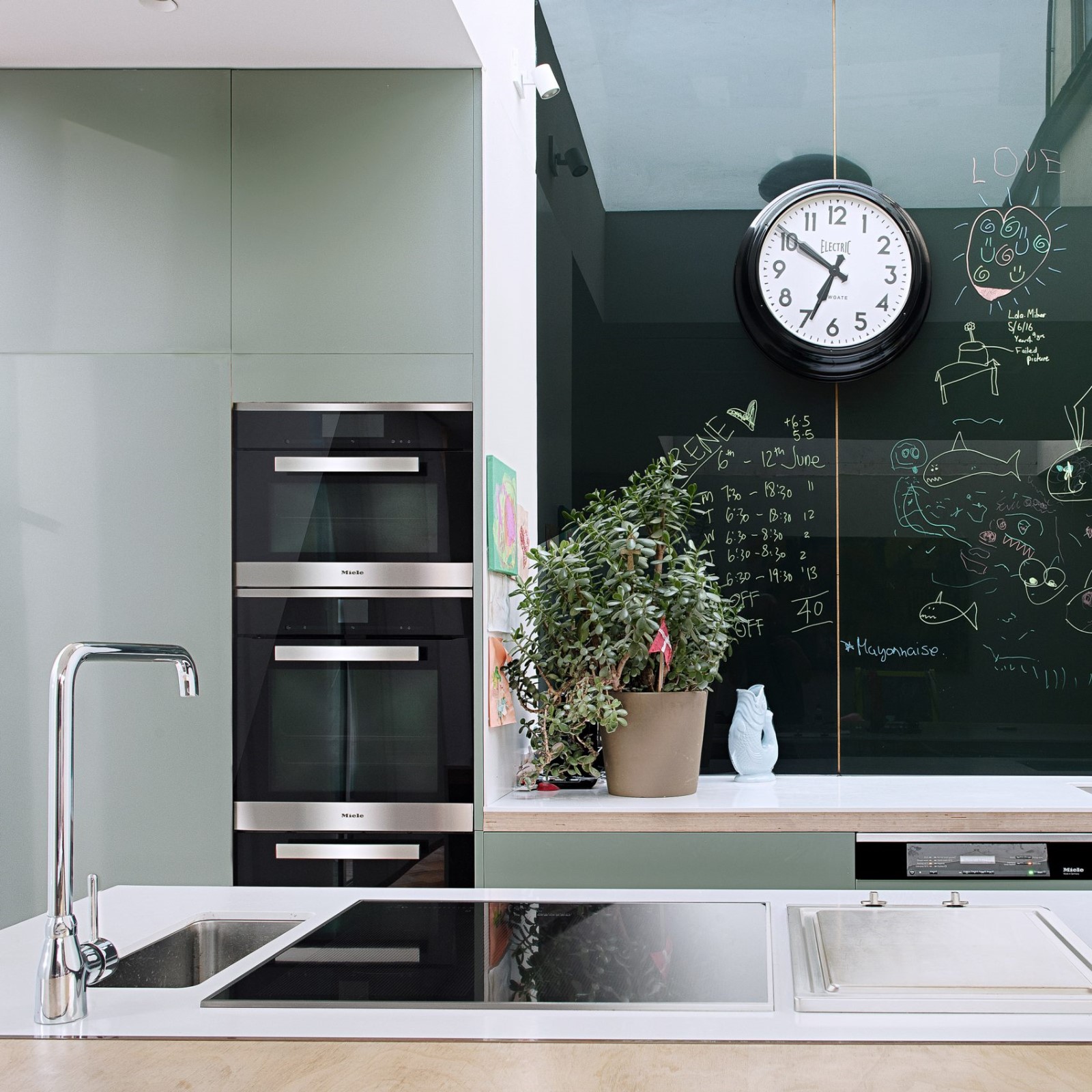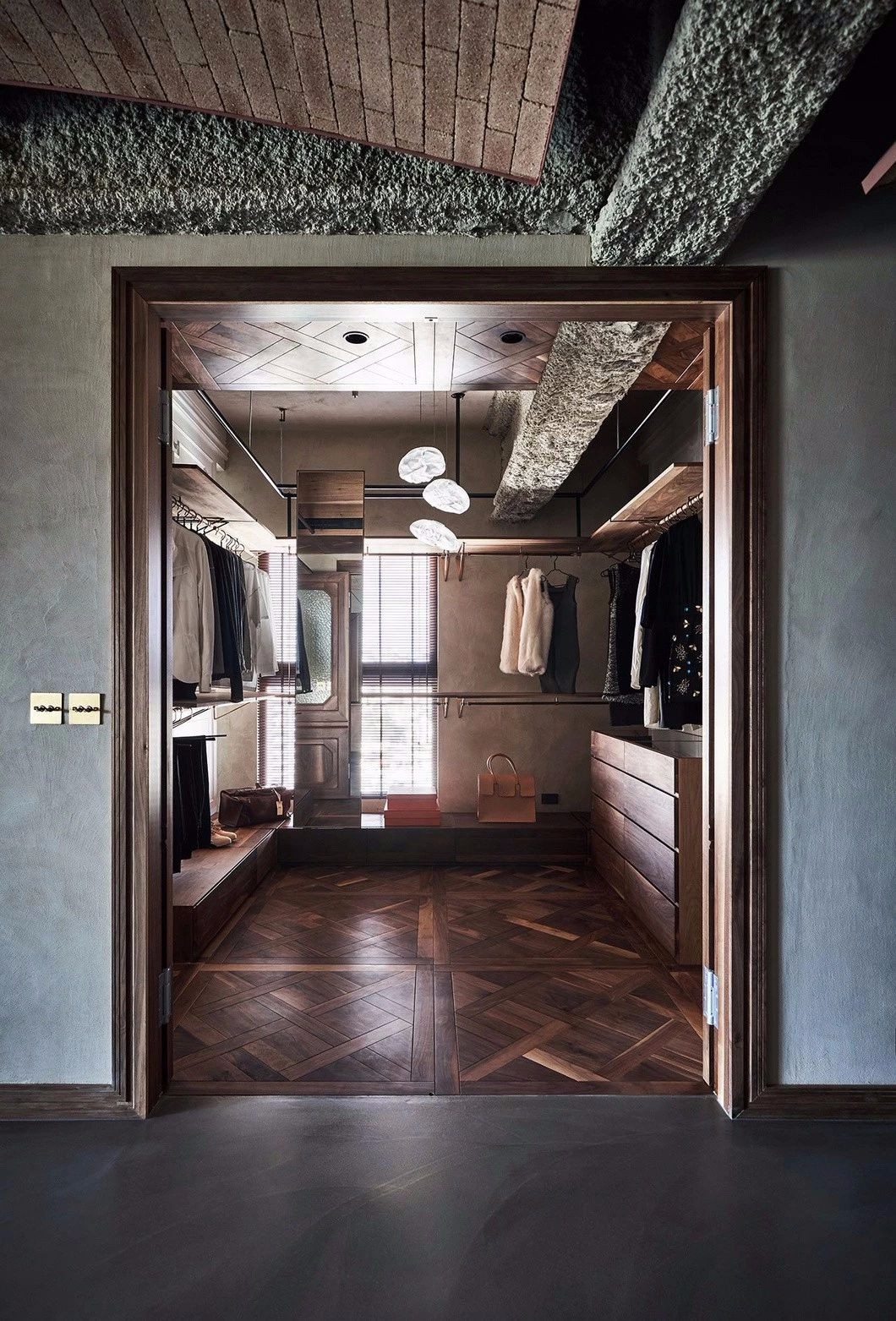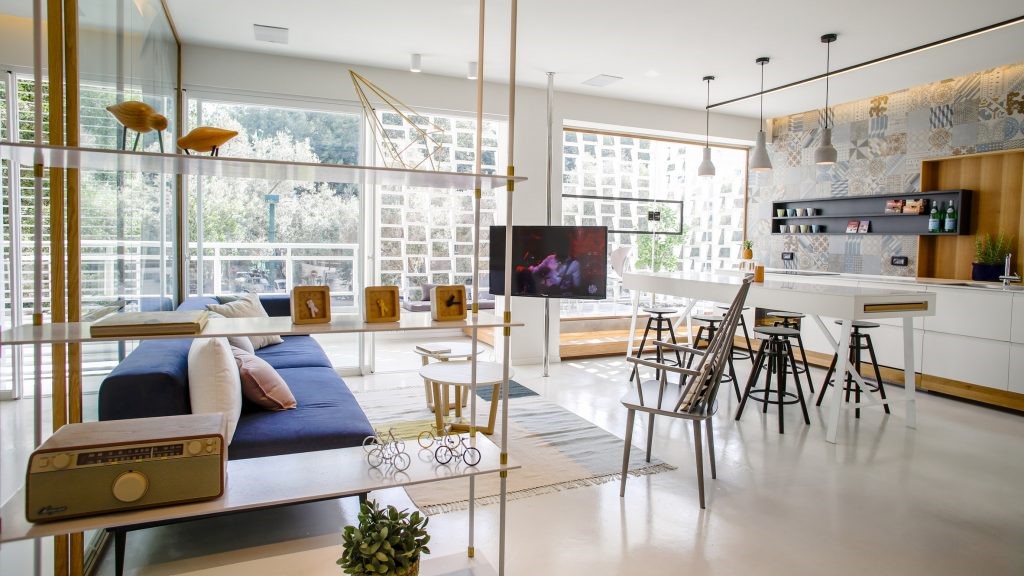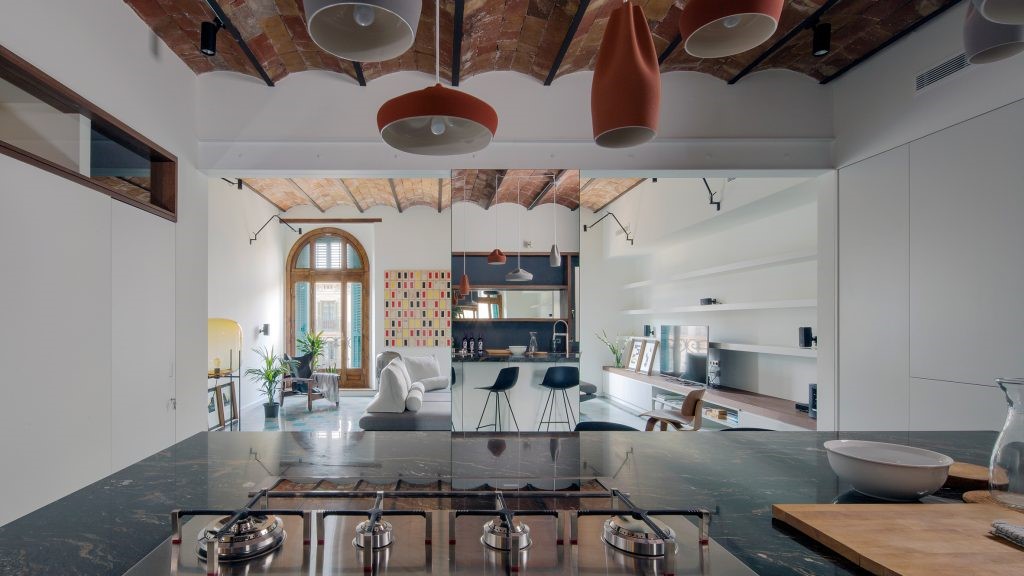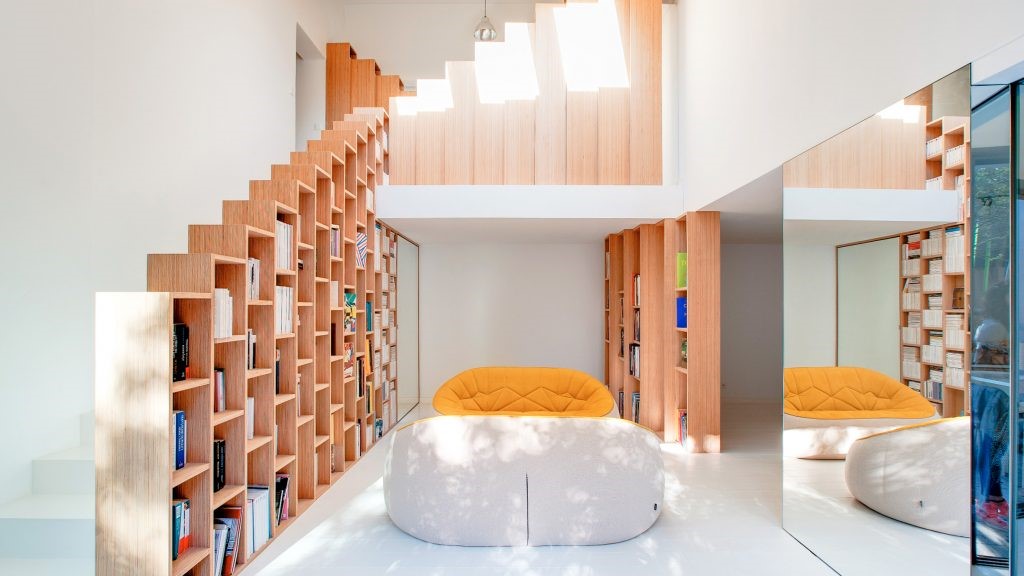A’Bodega Cubus
2016-02-22 09:00
架构师提供的文本描述。葡萄酒、稻草和野兽
Text description provided by the architects. WINE, STRAW AND BEASTS
里贝拉·萨克拉(加利西亚)的旧石制酿酒厂是(而且也是)与发展当地经济活动的房屋有关的异质建筑,例如保存火腿、葡萄酒和烈酒,以及储存稻草和放养牲畜。这个项目完全恢复了这些旧地窖中的一个,把它改造成一个新家。该项目以三个前提为基础:
The old stone wineries of the Ribeira Sacra (Galicia) were (and are) heterogeneous constructions linked to house where the activities of the local economy are developed, such as preserving ham, wine and spirits in addition to storing straw and putting the beasts to rest. The project fully recovers one of these old cellars to convert it into a new home. The project is based on three premises:
© Adrià Goula
(AdriàGoula)


最初的体积由两个几乎没有变化的身体组成:一个是两层的干草堆,另一个是有一层楼的第二卷,它整合了野兽场所和酒窖。两处都半埋在对着西面的道路上,并向东延伸。
The initial volume consists of two bodies that remain virtually unchanged: a two-storey haystack and a second volume with one floor that integrated the beasts place and the wine cellar. Both are semi buried by the road against the west facade, and open to east across the landscape.
Floor Plan
.jpg)



-尊重最初的数量和当地的结构。村庄是和谐的:石头建筑和现存的野草是平衡的。该建议不想打破这一平衡,因此它的工作尊重现有墙的限制。它还集成了本地建筑的值(干石的体积,构造,只有几个洞),而不放弃它自己的语言。
- Respect the initial volume and the local architecture. The village is harmonious: stone buildings and the existing wild grass wild are balanced. The proposal doesn’t want to break this equilibrium so it works respecting the limits of the existing walls. It also integrates the values of the local architecture (volumes of dry stone, tectonics, with only a few holes) without renouncing to it’s own language.
© Adrià Goula
(AdriàGoula)


-当地材料。它创造了一个箱子与现有的干燥石墙和板岩屋顶(从一所旧房子恢复)。木材是第二种主要材料。其余部分是根据本地构造函数的知识进行的。
- Local materials. It’s created a case with the existing dry stone walls and slate roof (recovered from an old house). Wood is the second main material. The rest is according to the knowledge of the local constructor.
© Adrià Goula
(AdriàGoula)


-照明、通风和景观。有必要确保空气和光线的条件,以提供舒适的家庭,但主要是为了使房子能够享受景观。
- Light, ventilation and views. It was necessary to ensure air and light conditions to provide comfortto the home, but mostly to make the house be able to enjoy the landscape.
© Adrià Goula
(AdriàGoula)


没有窗户的房子
THE HOUSE WITHOUT WINDOWS
镇上的人就是这样给房子洗礼的。这个绰号很好地解释了已经提出的解决困难的最初情况的主要卷,半埋和非常宽的策略。通过清空角落露台,建立关系,提供对角线视图,室内照明,和交叉通风。这种策略定义的不是窗户,而是立面上的空隙,给人一种没有窗户的构造房屋的外观,而是与内外景观建立了持续的关系。
This is how people from the town baptized the house. This nickname explains very well the strategy that has been raised to solve the difficult initial situation of the main volume, semiburied and very wide. By emptying the corners patios are created, that establish relationships that offer diagonal views, interior lighting, and cross ventilation. This strategy defines not windows but voids on the facades, giving an appearance of a tectonic house without windows, but establishing an continuous relationship with the landscape between inside and outside.
© Adrià Goula
(AdriàGoula)


.jpg)

© Adrià Goula
(AdriàGoula)


































.jpg)

.jpg)

.jpg)

.jpg)









Architects Cubus
Location Doade, Spain
Category Houses
Architect in Charge Estel Ortega Vázquez + David Pou van den Bossche
Project Year 2015
Photographs Adrià Goula, Antonio Rodriguez, Estel Ortega
















